Magnesium for Anxiety – Benefits, Types & How It Helps
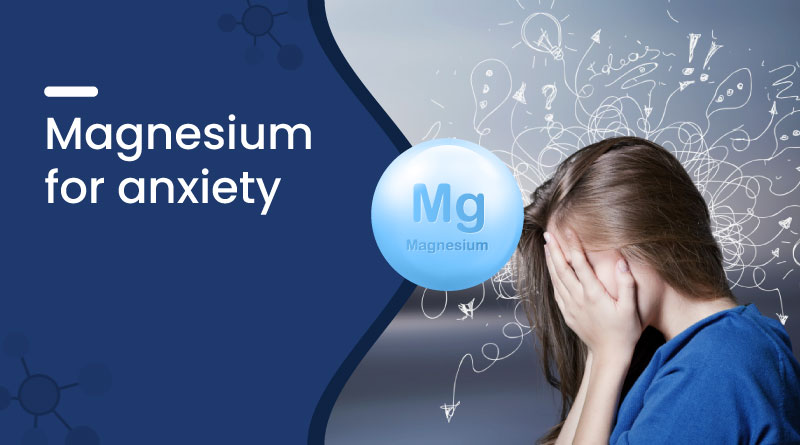

Anxiety has become a common issue in today’s fast-paced lifestyle. While therapy and medication are often recommended, many people are turning to natural options. One option gaining attention is magnesium. This essential mineral plays a key role in supporting mental health, and studies suggest it may help reduce anxious feelings and improve emotional balance.
What is Magnesium and Why Does It Matter for Anxiety?
Magnesium is a vital mineral that supports hundreds of body functions—from muscle contractions to nerve signals. When it comes to anxiety, magnesium is known to regulate neurotransmitters like GABA, which promote calmness and reduce overstimulation in the brain.
Low magnesium levels are often linked with increased stress, poor sleep, and heightened anxiety.
How Does Magnesium Help with Anxiety Symptoms?
Here’s how magnesium may ease anxiety:
- Regulates stress hormones: Magnesium helps lower cortisol, the stress hormone.
- Supports brain function: It improves communication between brain cells.
- Boosts relaxation: It activates GABA receptors, encouraging calmness.
- Improves sleep: Magnesium supports restful sleep, which is key for managing anxiety.
Also Read - Best Natural Supplements for Anxiety Relief
Which Types of Magnesium Are Best for Anxiety?
Not all forms of magnesium are equally effective. Some types are better absorbed and work specifically for brain and mood support. Here are the top choices:
- Magnesium Glycinate – Known for its calming effect and gentle impact on the stomach.
- Magnesium Citrate – Supports digestion and may have mild relaxing effects.
- Magnesium Threonate – Penetrates the blood-brain barrier, making it effective for cognitive and emotional support.
How Much Magnesium Should You Take for Anxiety Relief?
The general recommended daily intake for magnesium is:
| Group | Recommended Daily Intake |
|---|---|
| Men | 400–420 mg |
| Women | 310–320 mg |
For anxiety, magnesium supplements may offer noticeable effects when taken regularly, but always start with a lower dose and increase gradually if needed.
Tip: Always consult your doctor before starting magnesium, especially if you’re on medications.
Also Read - Medicine For Anxiety And Stress
What Are the Signs of Magnesium Deficiency in People with Anxiety?
If you're often anxious, you might also be low in magnesium. Watch for these symptoms:
- Constant fatigue or weakness
- Muscle cramps or twitching
- Insomnia or restlessness
- Headaches or migraines
- Irritability or mood swings
If you have any of these signs, magnesium might be worth considering as part of your anxiety management plan.
How Can You Get Magnesium Naturally Through Diet?
Food is the best starting point. Add these magnesium-rich foods to your daily diet:
- Leafy greens like spinach and kale
- Nuts and seeds, especially pumpkin seeds and almonds
- Whole grains like brown rice and oats
- Legumes such as black beans and lentils
- Bananas, avocados, and dark chocolate
Eating a balanced diet can provide steady magnesium levels, which may help stabilize your mood over time.
Are There Any Side Effects of Using Magnesium for Anxiety?
Magnesium is generally safe when taken at recommended levels. However, high doses may cause:
- Diarrhea
- Nausea
- Stomach upset
People with kidney issues should avoid magnesium supplements unless approved by a healthcare provider.
Also Read - Best Magnesium Supplement In India
How Fast Does Magnesium Work for Anxiety?
Results may appear within days or a few weeks. It depends on your body’s current magnesium levels, the form used, and consistency. For long-term benefit, regular intake is key.
Frequently Asked Questions
Q. Can magnesium really reduce anxiety?
A. Yes, research shows magnesium can regulate brain chemicals and reduce anxiety symptoms, especially if you're deficient.
Q. How quickly does magnesium work for anxiety?
A. You may feel calmer in a few days, but noticeable improvement can take 2–4 weeks with regular use.
Q. Is it safe to take magnesium every day for anxiety?
A. Yes, if taken within the recommended limit. Consult your doctor before starting daily supplements.
Q. Can I get enough magnesium through food alone?
A. Yes, if you eat plenty of greens, nuts, seeds, and whole grains. Supplements help if dietary intake is low.
Q. Which magnesium form is most effective for anxiety?
A. Magnesium glycinate and threonate are considered most effective due to their high absorption and calming properties.
Conclusion
Using magnesium for anxiety is a natural and science-backed approach to calming your mind and supporting emotional health. It works by regulating key brain chemicals, easing nervous system tension, and promoting better sleep. While it’s not a magic cure, adding magnesium through food or supplements can be a valuable part of your overall mental wellness routine.
If you’re struggling with anxiety, start by evaluating your magnesium intake—and always talk to a healthcare professional before adding supplements to your routine.
Vitamin A (1600 IU) + Vitamin E Acetate (1 IU) + Vitamin D3 (100 IU) + Vitamin B1 (1 mg) + Vitamin B2 (1 mg) + Vitamin B6 (0.5 mg) + Vitamin B12 (0.0005 mg) + Calcium Pantothenate (1 mg) + Niacinamide (15 mg) + Calcium (75 mg) + Phosphorus (58 mg) + Folic Acid (0.05 mg) + Copper Sulphate (0.045 mg) + Iodine (0.075 mg) + Potassium (1 mg) + Magnesium (1 mg) + Manganese (0.5 mg) + Sodium Molybdate (0.1 mg)
10 Capsules in 1 Strip
Protein Hydrolysate (16.67 gm) + Dibasic Calcium Phosphate (750 mg) + Phosphorous (580 mg) + Pyridoxine Hydrochloride (1.67 mg) + Cyanocobalamin (3.33 mcg) + Vitamin D3 (333.33 IU) + Niacinamide (50 mg) + Calcium Pantothenate (16.67 mg) + Folic Acid (1 mg) + Zinc Sulphate Monohydrate (1.67 mg) + Ferric Ammonium Citrate (25 mg) + Manganese Sulphate (5 mcg) + Magnesium Oxide (13.33 mg) + Anhydrous Copper Sulphate (8.33 mg) + Chromium Chloride (83.33 mcg) + Selenium Dioxide Monohydrate (66.67 mcg) + Potassium Chloride (16.67 mg) + Sodium Chloride (110 mg) + Potassium Iodide (333.33 mcg) + Excipients (q.s.)
500gm in 1 jar
Protein Hydrolysate (16.67 gm) + Dibasic Calcium Phosphate (750 mg) + Phosphorous (580 mg) + Pyridoxine Hydrochloride (1.67 mg) + Cyanocobalamin (3.33 mcg) + Vitamin D3 (333.33 IU) + Niacinamide (50 mg) + Calcium Pantothenate (16.67 mg) + Folic Acid (1 mg) + Zinc Sulphate Monohydrate (1.67 mg) + Ferric Ammonium Citrate (25 mg) + Manganese Sulphate (5 mcg) + Magnesium Oxide (13.33 mg) + Anhydrous Copper Sulphate (8.33 mg) + Chromium Chloride (83.33 mcg) + Selenium Dioxide Monohydrate (66.67 mcg) + Potassium Chloride (16.67 mg) + Sodium Chloride (110 mg) + Potassium Iodide (333.33 mcg) + Excipients (q.s.)
500gm in 1 jar
Protein Hydrolysate (16.67 gm) + Dibasic Calcium Phosphate (750 mg) + Phosphorous (580 mg) + Pyridoxine Hydrochloride (1.67 mg) + Cyanocobalamin (3.33 mcg) + Vitamin D3 (333.33 IU) + Niacinamide (50 mg) + Calcium Pantothenate (16.67 mg) + Folic Acid (1 mg) + Zinc Sulphate Monohydrate (1.67 mg) + Ferric Ammonium Citrate (25 mg) + Manganese Sulphate (5 mcg) + Magnesium Oxide (13.33 mg) + Anhydrous Copper Sulphate (8.33 mg) + Chromium Chloride (83.33 mcg) + Selenium Dioxide Monohydrate (66.67 mcg) + Potassium Chloride (16.67 mg) + Sodium Chloride (110 mg) + Potassium Iodide (333.33 mcg) + Excipients (q.s.)
500gm in 1 jar
Recent Blogs
Disclaimer : Zeelab Pharmacy provides health information for knowledge only. Do not self-medicate. Always consult a qualified doctor before starting, stopping, or changing any medicine or treatment.

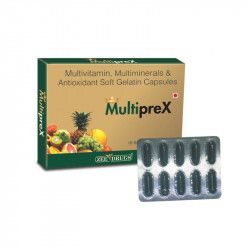
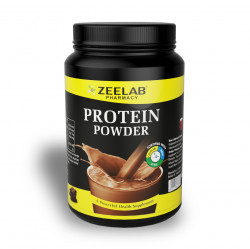
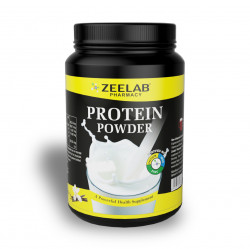
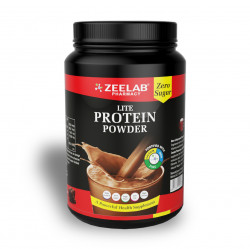
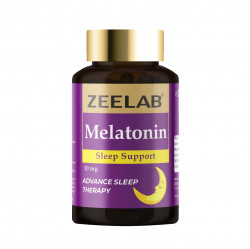
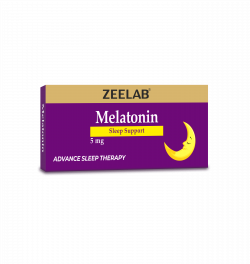
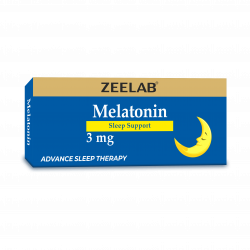















 Added!
Added!